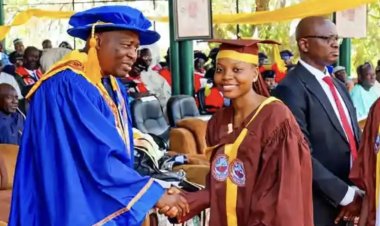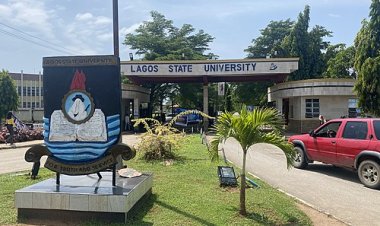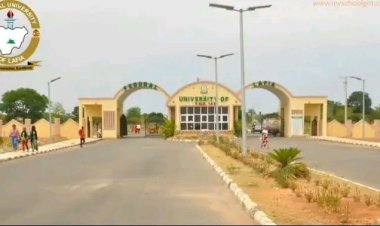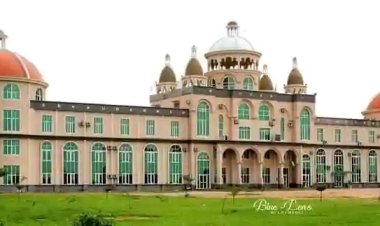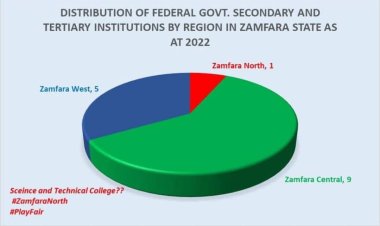DELSU Expert, Professor Edema, advocates environmental sustainability for human survival
Delta State University (DELSU) Expert, Professor Edema, has lend her voice in advocating for environmental sustainability for human survival

A lecturer in the Department of Botany, Delta State University, Abraka (DELSU), Professor (Mrs) Noyo Edema, has decried human activities which tended to degrade the environment, hamper environmental sustainability and endanger human survival, Myschoolnews report.
The Professor of Plant Physiology was delivering the 101st in the series of inaugural lectures entitled, Oil Pollution, Climate and Biodiversity: Are Contaminants Bane or Boon in the Environment? yesterday where she emphasized the importance of biodiversity as a green economy to reduce carbon emission, pollution and ecosystem degradation through carbon sink that could absorb all chemical pollutants, contaminants as the case may be. She told her audience at the 750 Hall A, Site III, that plant life was essential for all and for food security, oxygen, industrial materials, leisure, agriculture, cultural and aesthetics.
She took time to define the word “biodiversity” as “the degree of variation of life within and between species, biomes or an entire planet. It is a measure of the health of ecosystem and, in part, a function of climate. Biodiversity is the variability among living organisms from all sources, including terrestrial, aquatic and ecological complexes of which they are part. Biodiversity may also be defined as a number of species of plant, animals and micro organisms”, Relying on Scouth (2008), she also threw some light on plant physiology, which she defined as “the study of plant function and behaviour encompassing all dynamic processes of growth, metabolism, reproduction, defense and communication.
“Areas of plant physiology include Phytochemistry, (the study of biochemistry of plant); Phytopathology (the study of the diseases of plant); environmental plant Physiology, (the study of plant response to their immediate surrounding) and metabolic plant Physiology, (the study of the collection of inter-related biochemical reactions that maintain plant life)”.
Professor (Mrs) Edema, who was promoted to the rank of Professor in 2014, made a passionate plea to all to do everything within their power to enhance environmental sustainability by planting more trees and conserving existing ones. According to her, “to give credence to the importance of environmental plant physiology, climate and climatic elements were parts of God’s creation to ensure harmony and natural sustainability of biodiversity”.
Professor (Mrs) Edema who holds all three degrees from the University of Benin, Benin City, noted the relationship between biodiversity and climate change, adding that biodiversity has greatly been affected by climatic change, growing conditions and chemical pollutants or contaminants, e.g. crude oil pollution.
“These factors are brought about by the activities of man and industrialization, where business becomes more efficient in manufacturing processes, production methods and generating more contaminants”. She suggested that, “the environment should be considered first before industries”.
Described by the University Orator, Professor (Mrs) Enajite Ojaruega, as a profoundly erudite scholar, but self effacing, soft-spoken, affable, calm and with ever inspiring disposition”, Professor (Mrs) Edema suggested that in order to mitigate the effects of climate change and biodiversity distortion, man kind should embrace green technology, reduce green house gas emission and pollutants, use renewable energy and minimize the use of natural resources, and halt the trend of heavy use of agro chemicals in order to conserve the environment, improve yield and provide healthy food for human consumption and the use of synthetic chemical fertilizers and pesticides, transgenic species or antibiotics and growth-enhancing steroid or chemicals”, among others.
The two-time Head of Department of Botany and pioneer Director of Intellectual Property and Technology Transfer office, was of the opinion that human beings should make all efforts to address forest depletion, desertification and other activities that harm the environment and put human survival in jeopardy.
Speaking at the occasion, the Vice-Chancellor, Professor Andy Egwunyenga said the 101st in the series of inaugural lectures was a ‘new beginning’. He noted that there was no better time than now to focus on the environment and climate change, adding that the University was contributing to the global discourse.
While decorating Professor (Mrs) Edema with the University Most Distinguished Medal, Professor Egwunyenga, who is giving DELSU an enlightened and committed leadership, described the inaugural lecturer, who has put in 28 years in the services of the University, as “a silent academic workaholic, unassuming and service-oriented”. He commended her for researching on how the environment, “our Garden of Eden”, could be conserved and promoted, adding that “our environment determines or dressing, food and our entire lives”.
He described as “dire” our failure to promote our God-given environment. “We have undermined our environment and we are paying the consequences”, remarked the environmental activist of note, who recently received an environmental sustainability award. In closing the ceremony, the Vice-Chancellor observed, rather solemnly: “The gospel of the environment has been preached. We should go and sustain the environment that God has given us”.
Professor Ben Nwanne is Director, Ceremonials, Information and Public Relations, Delta State University, Abraka.

